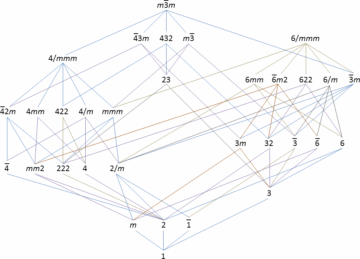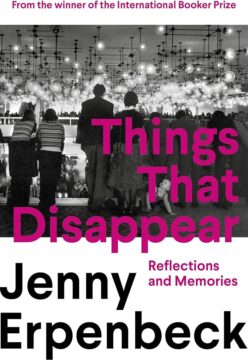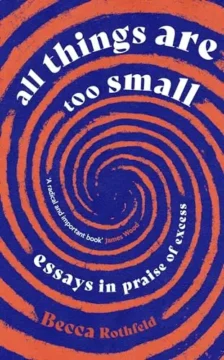Lily Scherlis at n+1:
 Group relations was built for wartime, its experimental protocols germinating amid British imperial and military activity. During World War I, Bion had led tank squadrons, learning how groups behaved when enclosed in machines that might explode at any moment. In World War II, charged with selecting cadets to train as officers, Bion observed how individuals behaved in unstructured groups, inventing the prototype of the small study group. Working at British military psychiatric hospitals, he turned his method of passive observation into a treatment: refusing to actively facilitate his therapy groups, he waited quietly, unperturbed by his squirming patients. When they would complain that they weren’t receiving therapy, he would genially offer a hypothesis about how the group was behaving at that moment.
Group relations was built for wartime, its experimental protocols germinating amid British imperial and military activity. During World War I, Bion had led tank squadrons, learning how groups behaved when enclosed in machines that might explode at any moment. In World War II, charged with selecting cadets to train as officers, Bion observed how individuals behaved in unstructured groups, inventing the prototype of the small study group. Working at British military psychiatric hospitals, he turned his method of passive observation into a treatment: refusing to actively facilitate his therapy groups, he waited quietly, unperturbed by his squirming patients. When they would complain that they weren’t receiving therapy, he would genially offer a hypothesis about how the group was behaving at that moment.
From his observations, Bion theorized that groups under pressure tend to regress to earlier developmental stages. Just as individuals regress into neurosis or psychosis, regressed groups unconsciously gravitate toward one of three counterproductive psychic states Bion called “basic assumptions.”
more here.
Enjoying the content on 3QD? Help keep us going by donating now.

 Each time I take a long trip, I lose at least one scarf or hat, sometimes even a pair of sunglasses or a watch. I’ve also lost a number of things when moving house: a piece of moulding from an old rustic wardrobe, a few blinds, and once I even lost the typewriter I used to write my first works. Although the hotel rooms I left were small, and the apartments I left were clearly empty, the things were still missing later; somehow, somewhere, they had disappeared in the no man’s land between departure and arrival, it happened so regularly that I began to expect it when packing my suitcase or my boxes, as if it were a sacrifice, a price I had to pay for the change in my circumstances, and in that respect, despite all the randomness, it was still appropriate. However, in the course of my everyday life, the number of things around me never decreased, but rather increased, the piles grew higher, the folders thicker, I could imagine that a fire would break out and I would tuck my diaries, letters, and photo albums under my arm and run out of the house, but fortunately no fire broke out.
Each time I take a long trip, I lose at least one scarf or hat, sometimes even a pair of sunglasses or a watch. I’ve also lost a number of things when moving house: a piece of moulding from an old rustic wardrobe, a few blinds, and once I even lost the typewriter I used to write my first works. Although the hotel rooms I left were small, and the apartments I left were clearly empty, the things were still missing later; somehow, somewhere, they had disappeared in the no man’s land between departure and arrival, it happened so regularly that I began to expect it when packing my suitcase or my boxes, as if it were a sacrifice, a price I had to pay for the change in my circumstances, and in that respect, despite all the randomness, it was still appropriate. However, in the course of my everyday life, the number of things around me never decreased, but rather increased, the piles grew higher, the folders thicker, I could imagine that a fire would break out and I would tuck my diaries, letters, and photo albums under my arm and run out of the house, but fortunately no fire broke out. Whether I like it or not, the first line of my obituary will probably be that I was the founding editor of
Whether I like it or not, the first line of my obituary will probably be that I was the founding editor of  “The classic example of a hijack is masturbation,” Edward Slingerland tells me. We’re talking about all the evolutionary quirks that humans tend to exploit — the cases where we’re “built” for one purpose, but decide to put that structure to other uses. And masturbation is a classic example.
“The classic example of a hijack is masturbation,” Edward Slingerland tells me. We’re talking about all the evolutionary quirks that humans tend to exploit — the cases where we’re “built” for one purpose, but decide to put that structure to other uses. And masturbation is a classic example. In its first three days, users of a new app from OpenAI deployed artificial intelligence to create strikingly realistic videos of ballot fraud, immigration arrests, protests, crimes and attacks on city streets — none of which took place.
In its first three days, users of a new app from OpenAI deployed artificial intelligence to create strikingly realistic videos of ballot fraud, immigration arrests, protests, crimes and attacks on city streets — none of which took place. Complaints about the state of criticism are a very old story. But nothing I’ve read—from indictments published decades ago by Cyril Connolly, Elizabeth Hardwick, Clement Greenberg, and Gore Vidal to James Wolcott’s evisceration of cultural coverage at The New York Times in a recent issue of Liberties—can top Ian McKellen’s howl for what we’ve lost, telegraphed through every twist and turn of his performance as the curmudgeonly theater critic Jimmy Erskine in The Critic (2023).
Complaints about the state of criticism are a very old story. But nothing I’ve read—from indictments published decades ago by Cyril Connolly, Elizabeth Hardwick, Clement Greenberg, and Gore Vidal to James Wolcott’s evisceration of cultural coverage at The New York Times in a recent issue of Liberties—can top Ian McKellen’s howl for what we’ve lost, telegraphed through every twist and turn of his performance as the curmudgeonly theater critic Jimmy Erskine in The Critic (2023). On Day 3, I started seeing Rothkos. Immersed in darkness, I was hallucinating abstract expressionism, smears of pink and blue pulsing through what I knew to be a room in Massachusetts, though it was also a cave and somehow a black hole. A strange inner cinema comes online after enough time in absolute blackness, a kind of backup generator for imagery. I sat. Had sat for hours. It was daytime, or maybe nighttime, one of the big two. Was I unraveling? Raveling? What did I know for sure? I knew to breathe: Om ah hum. If I truly freaked, I could find the door. I didn’t want the door. I wanted to boil existence down, see what remained.
On Day 3, I started seeing Rothkos. Immersed in darkness, I was hallucinating abstract expressionism, smears of pink and blue pulsing through what I knew to be a room in Massachusetts, though it was also a cave and somehow a black hole. A strange inner cinema comes online after enough time in absolute blackness, a kind of backup generator for imagery. I sat. Had sat for hours. It was daytime, or maybe nighttime, one of the big two. Was I unraveling? Raveling? What did I know for sure? I knew to breathe: Om ah hum. If I truly freaked, I could find the door. I didn’t want the door. I wanted to boil existence down, see what remained. Fyodor Dostoyevsky began to write what would become his last novel, “
Fyodor Dostoyevsky began to write what would become his last novel, “ “Magic mushrooms”—long used by Indigenous communities in ceremonial contexts and popularized during the psychedelic heyday of the 1960s—are once again entering the mainstream, in large part for the potential clinical applications of their psychoactive component, psilocybin. Though scientific interest has thus far mainly focused on the use of psilocybin for treating psychiatric conditions like anxiety and depression, a recent study made headlines for findings that hinted at a role for psilocybin in aging-related processes. Specifically, authors Kato et. al. present data from human cells and aging mice that suggest psilocybin could potentially act as a lifespan-extending drug.1
“Magic mushrooms”—long used by Indigenous communities in ceremonial contexts and popularized during the psychedelic heyday of the 1960s—are once again entering the mainstream, in large part for the potential clinical applications of their psychoactive component, psilocybin. Though scientific interest has thus far mainly focused on the use of psilocybin for treating psychiatric conditions like anxiety and depression, a recent study made headlines for findings that hinted at a role for psilocybin in aging-related processes. Specifically, authors Kato et. al. present data from human cells and aging mice that suggest psilocybin could potentially act as a lifespan-extending drug.1